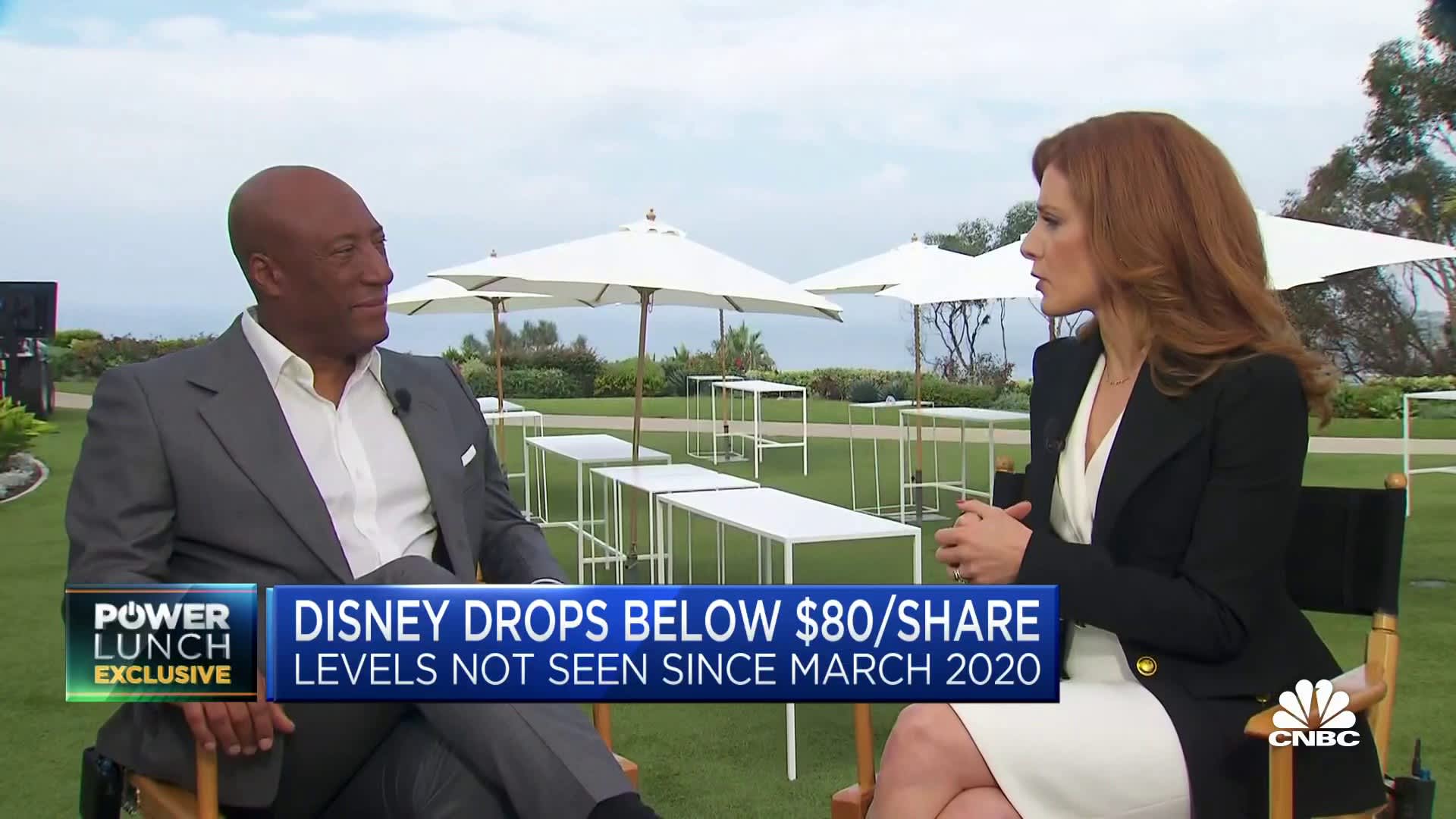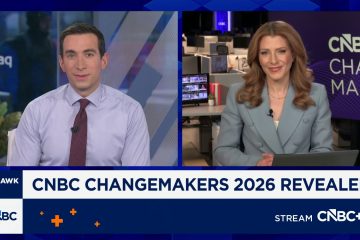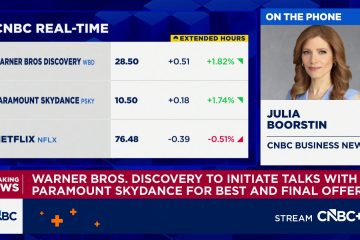Byron Allen, founder, chairman, and CEO of Entertainment Studios and Allen Media Group, speaks during the Milken Institute Global Conference in Beverly Hills, California, on May 2, 2022.
Patrick T. Fallon | Afp | Getty Images
Broadcast stations owned by Byron Allen — the media mogul who has expressed public interest in buying various media assets for billions of dollars — have been consistently late in making payments to network owners, angering media allies and creating distance between Allen and his would-be deal partners, CNBC has learned.
The stations owned by Allen Media Group have been as much as 90 days past due on the payments to networks including ABC, CBS and NBC, according to people familiar with the matter. The payments total tens of millions of dollars throughout the year, and the extent of the lateness has grown worse over time, said the people, who asked not to be named because the financial transactions are private.
Allen Media Group owns broadcast stations in more than 20 markets between ABC, CBS and NBC affiliates, according to the group’s website.
ABC, CBS and NBC have all grown increasingly frustrated after what feels like a perpetual chase for the fees — even after agreeing to payment plans at Allen’s request, the people familiar said. Paying consistently late is uncommon among local broadcasters, which pay hefty sums to the larger network owners to carry the brand and some content, particularly live sports like the NFL and many postseason games across leagues, the people said.
It’s unclear why Allen Media Group has been repeatedly late with payments.
After CNBC reached Allen Media for comment this week, the group made a payment on the outstanding fees, according to people familiar with the matter. The amount of the payment couldn’t immediately be determined.
Networks often collect fees from local affiliates every one to three months, depending on the contract. The funds to pay come in large part from so-called retransmission fees that cable TV operators pay to the stations, which can create a situation where money may need to go out before it comes in. Recently, broadcast station group executives have argued this structure should change as cord cutting accelerates and networks move more of their content over to streaming platforms.
Various divisions of Allen’s company, including stations located across markets in the Midwest, Southeast, West Coast and Hawaii, have also reportedly undergone layoffs in recent months. Another round of job cuts is expected at the end of August, one of the people familiar with the matter said.
Representatives for Allen Media Group declined to address the details of this story but said in a statement: “Mr. Allen started Allen Media Group 31 years ago from his dining room table. Allen Media Group is now one of the largest and fastest growing privately-held media companies in the world and is 100 percent Black-owned.
“Like most media companies and private equity firms, we evaluate many acquisition opportunities. In the last few years, the company has successfully completed well over $1 billion in acquisitions with the continued support of the capital markets. Allen Media Group remains strong, and we continue to prudently manage our partner relationships as we have always done over our 31-year history,” the statement says.
Representatives for ABC, CBS and NBC declined to comment on the matter.
Allen’s business
Allen’s late payments of tens of millions of dollars stand in stark contrast to his frequent multibillion-dollar bids for media assets. In recent years, his pursuit of deals that haven’t panned out has led investment bankers and financial institutions to lose faith in Allen as a serious buyer for large assets, according to three investment bankers and a person close to the matter.
Allen’s recent M&A interest includes a $30 billion bid for Paramount Global earlier this year, a $10 billion offer for ABC and other Disney networks last year, and a reported $3.5 billion offer for Paramount’s BET Media Group, which he resubmitted in December after the process was ended.
There has also been a recent report that Allen is weighing another bid for Paramount before its “go-shop” period with buyer Skydance expires later this month.
Allen has been vocal about his ambitions to grow his media holdings, defending his track record of failed bids and telling CNBC in January that recent acquisition attempts had fallen through because some owners ultimately decided not to sell.
“We have quite a few banks that support us and stand with us and even private equity firms,” Allen told CNBC in September about the potential deal for ABC and other Disney assets. “I think other assets will start to become available, and I think we will eventually get them.”

Allen Media Group has taken to reposting public media reports on its own website of its interest in bidding on media properties — even for unconfirmed reports of interest, such as a reported $8.5 billion offer for Tegna.
Previously a comedian, Allen founded Entertainment Studios, now known as Allen Media Group, in 1993. In 2019 Allen Media Group Broadcasting was formed, and Allen has been building up his broadcast media empire since with a string of smaller deals.
In addition to The Weather Channel and broadcast TV stations, Allen Media also owns a group of small TV networks like Pets.tv and Comedy.tv, as well as Black news and entertainment network TheGrio.
And, in April 2021, Allen Media paid $380 million to Gray Television for seven stations as part of Gray’s required divestitures for its acquisition of Quincy Media.
Allen’s broadcast stations generate revenue, as most other stations do, through advertising revenue and so-called retransmission fees — payment that stations receive from pay TV operators for the right to carry their feed. Broadcast station groups, however, have also suffered as millions of people have switched from traditional TV to streaming.
A record uptick in political advertising is expected ahead of the presidential election, as some of the largest broadcast station owners like Nexstar Media Group and Sinclair have documented in recent earnings releases.
Disclosure: Comcast’s NBCUniversal is the parent company of CNBC and broadcast network NBC.
Correction: Allen Media Group paid $380 million to Gray Television for seven stations in April 2021. A previous version of this article misstated the timing of the transaction.





